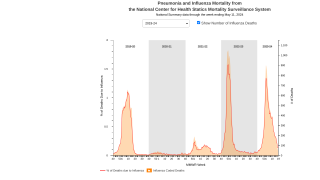Bird Flu Outbreak in Hong Kong

The number of deaths attributed to seasonal flu in Hong Kong is now responsible for more fatalities than the 2013 SARS outbreak, according to the Hong Kong Department of Health (HKDH).
The 2017 flu epidemic, which began in May, exceeds the SARS outbreak in 2003, which killed 299 people.
This summer flu in Hong Kong has now claimed 315 lives. Data released in July, 2017 by the HKDH showed that more than 50 percent of the flu cases, mostly of the H3N2 bird flu virus, took place in retirement homes. Another 23 percent occurred in kindergartens.
Moreover, the HKDH expects the number of fatalities to increase. The health department said that based on the latest data, its prevalence would remain high throughout the next few weeks.
Asian H5N1 was first detected in humans in 1997 during a poultry outbreak in Hong Kong and has since been detected in poultry and wild birds in more than 50 countries in Africa, Asia, Europe, and the Middle East.
The US Centers for Disease Control and Prevention (CDC) plan for the control of avian influenza includes coordination of resources and response, and protocols for quarantine, testing, disposal, cleaning, disinfection and monitoring.
The CDC currently recommends oseltamivir, peramivir, or zanamivir for treatment of human infection with avian influenza A viruses.
However, some evidence of antiviral resistance has been reported in HPAI Asian H5N1 viruses and influenza A H7N9 viruses isolated from some human cases.
The CDC maintains a stockpile of H5N1 vaccine. The stockpiled vaccine could be used if a H5N1 virus begins transmitting easily from person to person.
Our Trust Standards: Medical Advisory Committee
- Highly Pathogenic Asian Avian Influenza A (H5N1) Virus
- Interim Guidance on Influenza Antiviral Chemoprophylaxis of Persons Exposed to Birds with Avian Influenza A Viruses Associated w
- Hong Kong this summer due to the death toll has risen to 315 people
- Beware of it! Hong Kong flu has caused 307 deaths, the total number of super SARS period!
- Hong Kong bans import of poultry meat and products from Mogale City Local Municipality, South Africa


























